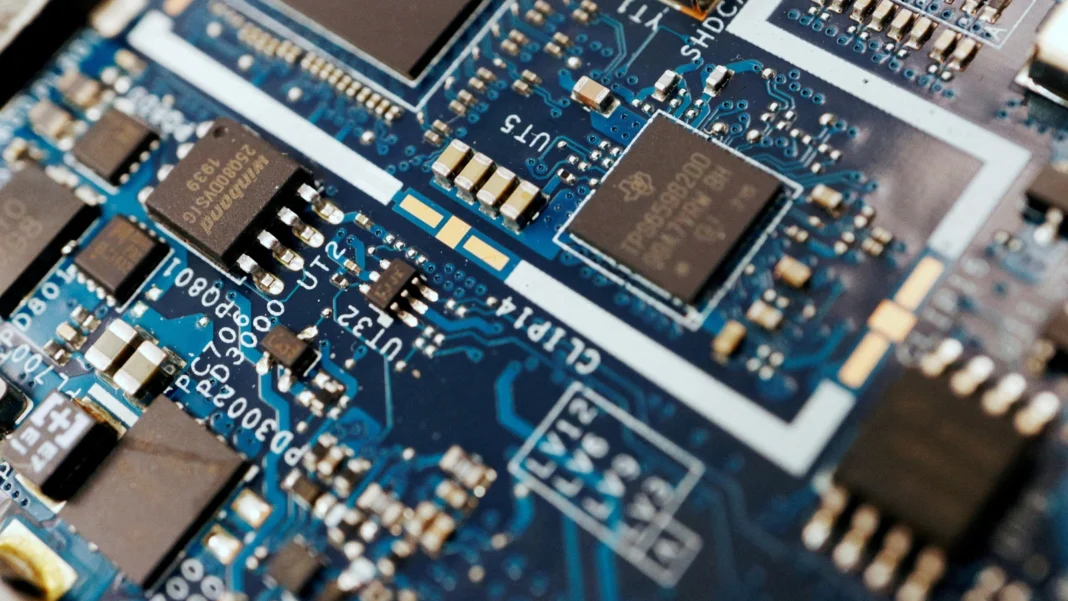Tariffs on Imported Semiconductor Chips Coming Soon, Trump Says
Trump semiconductor tariffs are set to reshape the global tech landscape, with former President Donald Trump announcing that tariffs on imported semiconductor chips will soon be implemented. This move comes amid growing concerns over the United States’ reliance on foreign-made technology and efforts to strengthen domestic manufacturing.
Trump Semiconductor Tariffs: A Bold Shift in Trade Policy
The announcement signals a significant shift in U.S. trade policy. Tariffs, expected to start at 25%, are being proposed as part of a broader initiative aimed at safeguarding national security and encouraging domestic production. The tariffs are set to affect chips imported from countries such as Taiwan, South Korea, Malaysia, Japan, and China, which currently dominate the global semiconductor supply chain.
According to Trump, the tariffs are intended to protect American interests and reduce vulnerability in critical technology sectors. “We will not be dependent on nations that don’t share our values,” he said during a recent press conference. While exact dates have not been confirmed, the implementation is anticipated within one to two months.
National Security Concerns Take Center Stage
A Section 232 investigation has already been launched by the U.S. Commerce Department. This type of investigation is typically reserved for matters directly tied to national security. Officials have expressed concern that the U.S. economy—and particularly its defense systems—could be jeopardized by dependence on foreign chips.
It has been reported that policymakers are particularly worried about geopolitical tensions in East Asia, especially in relation to China and Taiwan, where many semiconductor facilities are based. Should access to these resources be disrupted, the impact on U.S. industries ranging from defense to consumer electronics could be devastating.
Impact on Consumers and Industry
While the aim is to protect domestic manufacturing, the ripple effects of these tariffs may be felt by consumers and tech companies alike. Products like smartphones, laptops, and other electronic devices that rely heavily on imported chips could see price increases in the coming months.
Commerce Secretary Howard Lutnick has stated that previous exemptions for electronics such as iPhones will no longer apply. This means that major U.S. companies, including Apple and Dell, may be forced to either absorb the cost or pass it on to consumers.
Industry insiders have raised concerns about the lack of clarity and consistency in trade policy. Many believe that abrupt changes and the looming threat of tariffs have created an uncertain business climate, discouraging long-term investment in both domestic and international markets.
Economic and Political Reactions
Not all reactions have been favorable. Economists and political figures, including Senator Elizabeth Warren and investor Ray Dalio, have voiced concerns that these tariffs could trigger inflationary pressures. With fears of a recession already circulating, the additional burden on consumers and businesses might deepen economic instability.
Critics argue that a more balanced approach is needed—one that supports domestic growth without igniting trade wars. At the same time, supporters of the move have praised the renewed focus on “America First” economic policies, believing that such measures will ultimately lead to job creation and industrial revival.
What Comes Next?
As details of the new tariff policy continue to unfold, businesses are being urged to assess their supply chains and prepare for possible disruptions. Technology firms, in particular, are expected to explore options for onshoring production or diversifying suppliers to avoid steep import duties.
Meanwhile, ongoing diplomatic discussions with key trade partners are likely to intensify. Some analysts suggest that retaliatory measures from affected nations could be on the horizon, potentially leading to a new phase in global trade dynamics.
Conclusion
The decision to impose tariffs on imported semiconductor chips is poised to have far-reaching consequences across the global tech ecosystem. While the move is being positioned as a necessary step to protect U.S. interests and ensure national security, the economic and political implications are expected to be profound.
As the world watches closely, it remains to be seen how the policy will be implemented—and how it will reshape the future of technology, trade, and innovation in the United States.


